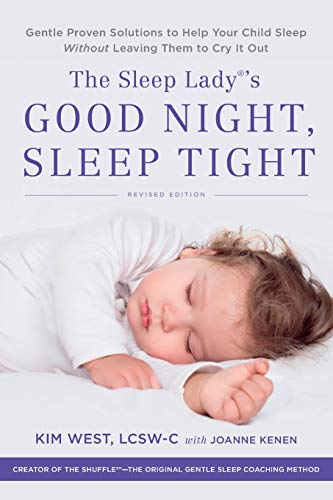It’s time. You’re ready to get your baby to sleep all the way through the night but how can you do that if the baby is still waking up at least once for a feeding? Night weaning seems impossible because don’t they need that food? Here’s how to night wean your baby the right way.
Some of the links below contain affiliate linking, which means that at no extra cost to you, I may earn a commission if you click through and make a purchase. You can read my full disclosure policy here.
Before we get into the practical tips for night weaning let’s make sure you’re trying to do this the right way.
Be sure to consult with your pediatrician about night weaning.
Before you can begin you need to be sure your baby is gaining a healthy amount of weight, and is able to sleep for long chunks without needing anything to eat.
Usually, this means by at least 6 months old.
Here’s a little chart to help you be sure if your baby is on target for night weaning:
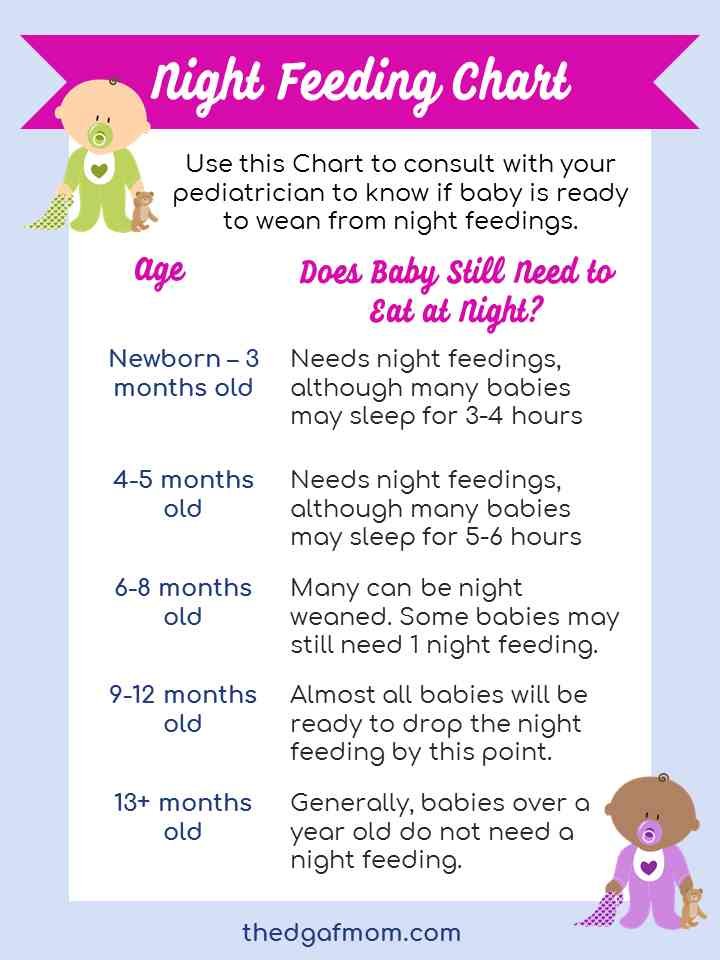
Table of Contents:
The Connection Between Night Bottles and Nightweaning
Getting Your Mind Right About Dropping the Bottles
Creating a Bedtime Bottle Routine That Is Not Reliant on a Bottle or Breast
How to Night Wean Your Baby Off of the Bottle (or Breast)
Tips for Night Weaning Success
Set The Stage for Nightweaning Your Baby
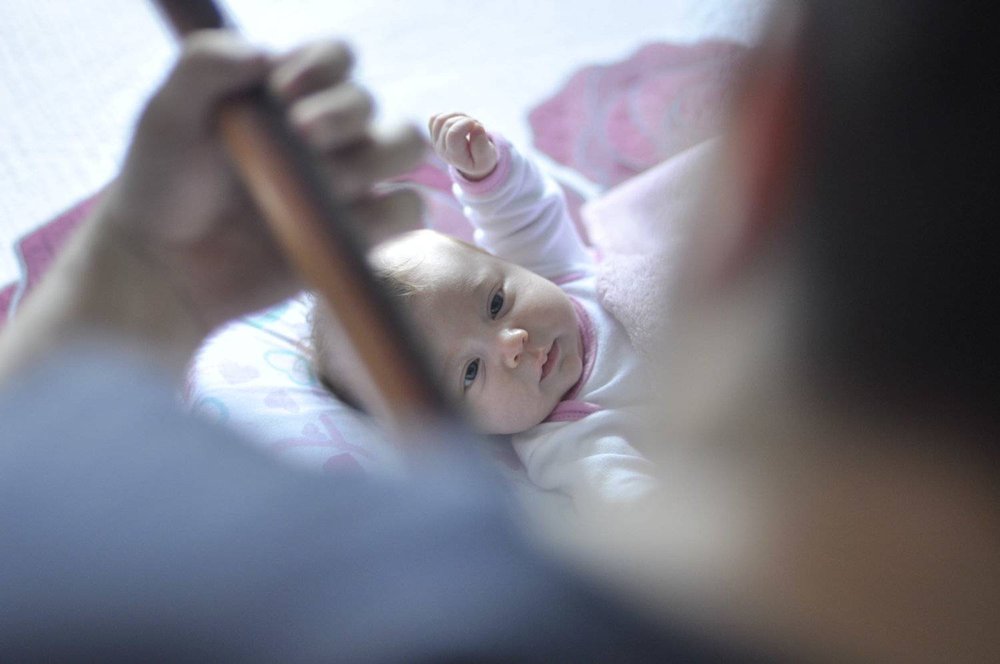
All babies wake several times a night. When they connect these short brief wakings together, that’s when the magic of “sleeping through the night” occurs.
If you use a bottle or breastfeed to get your baby to sleep, you begin to create a sleep environment that prevents your child from being able to connect those important sleep cycles together on their own.
They, instead, begin to associate the comfort of the milk or formula with sleep and have a hard time breaking that habit. Also, if you’ve ever asked the question “do formula-fed babies sleep longer at night?” then I have the answer right here!
The longer you delay night weaning your baby from a bottle, the harder it will become, because they are becoming older and more aware of the choices they need to make to fall asleep.
They’re also learning a somewhat negative association (for you) that feels like a positive association (for them).
They “need” the bottle to fall asleep, rather than possess the natural ability to fall asleep on their own with their own cues.
When given the choice of having a bottle of breast to fall asleep or to do it on their own, your baby will choose bottle or breast every single time.
Until you decide to night wean, and help your baby learn other resettling techniques, you’ll continue to have these night wakings for food.
In other words, you can’t trust your baby to be the one to “drop the feed.”
While I have heard and read about some rare unicorn cases where this happens, it’s far more common that mom and dad need to help encourage the nightweaning.
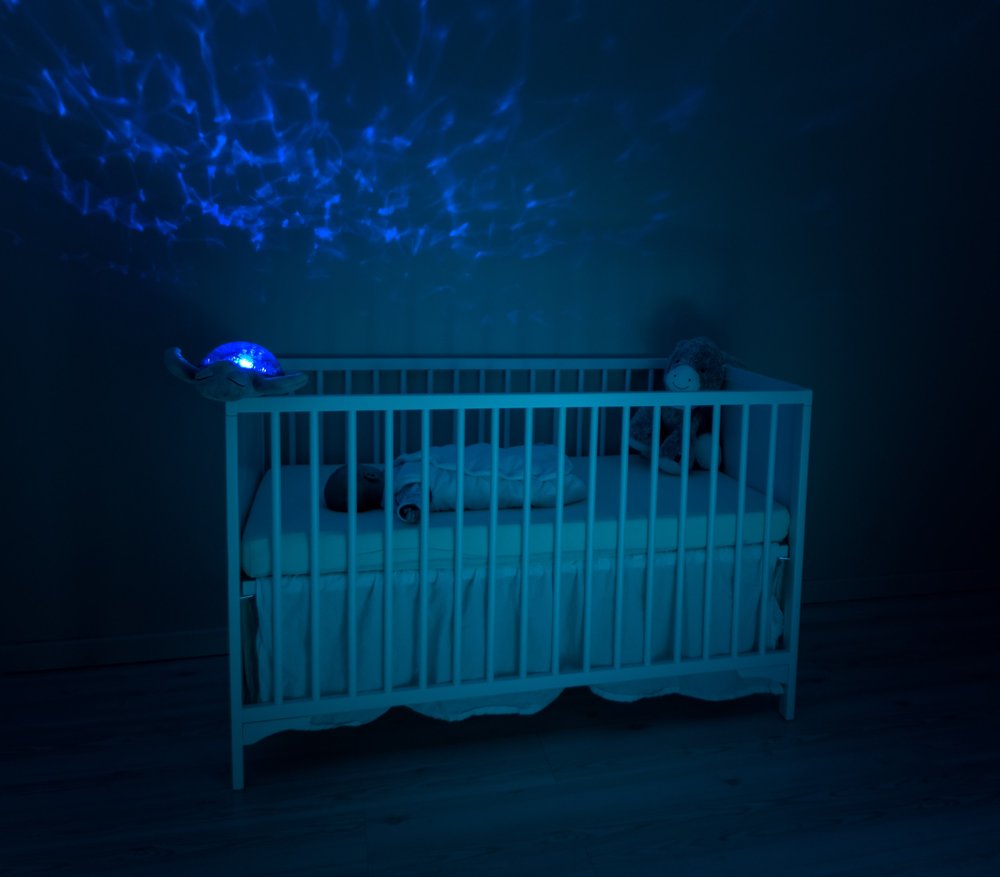
Ever heard the term, mindset?
It’s originally coined by Carol Dweck in her monumental study of what differentiates successful people from those who just get along and then wrote about it in her omfg-you-need-to-ready-this-book, Mindset.
According to Dweck, all people are categorized into one of two mindsets: Fixed mindset, or growth Mindset.
Here’s a bit more from her website to explain:
In a fixed mindset, people believe their basic qualities, like their intelligence or talent, are simply fixed traits. They spend their time documenting their intelligence or talent instead of developing them. They also believe that talent alone creates success—without effort. They’re wrong.
In a growth mindset, people believe that their most basic abilities can be developed through dedication and hard work—brains and talent are just the starting point. This view creates a love of learning and a resilience that is essential for great accomplishment. Virtually all great people have had these qualities.
Beth, what the fuck does this have to do with nightweaning my baby, tho?
Stick with me. Because, kind of everything.
Since reading about mindset, I notice people’s mindsets: in my friends, my family, myself even: especially when it comes to parenting choices or how to progress with my blog.

When it comes to night weaning, it’s important that you have a growth mindset.
To help your baby learn to fall asleep and eventually to sleep through the night without a bottle or breast is completely up to you, your partner, and any other caregivers involved. Not your baby.
You decide when this is going to happen.
You need to be committed to making night weaning a reality, or it won’t. You cannot have a fixed mindset and believe false statements such as, “he’s not ready to drop the bottle,” or “He just didn’t want to do it.”
You are in control of whether or not your baby drops the feedings. Not your baby.
You are the one who knocks.
At the same time, you MUST have a fixed mindset that you can do this.
And not stray from the course.
No matter which tactic you choose to night wean your baby, it 100% is reliant on you and your partner’s ability to be consistent. If you offer a bottle as a last resort to get them to stop crying, it’s not gonna work.
When you change the rules within the plan of how to night wean your baby midcourse, you’ll confuse your baby and it will take far longer to get him to understand what’s at stake here, and will continue to just keep expecting the bottle.
Because you’re training him to know that if he keeps crying, maybe…like three nights ago, you’ll give him the bottle again.

Get your mindset right about how this is going to go.
Figure out a strategy that works for you and your family and get to work.
Don’t plan to do this right before you’re going on a trip, or during a very stressful time at work (If that’s possible!)

You’ll want to create an opportunity for success for sleep and consistency.
Give yourself at least a week of consistent follow through with your plan before you reevaluate your strategy.
Understand this is less about getting calories at night than it is about comfort. And if, after consulting with your pediatrician, you both believe it’s a good time to night wean, then by all means. Go for it!
One last time though for the people in the baaack…
Do not drop a night feeding if your baby is not gaining enough weight or tracking on their growth chart. You can do so much more harm than good in trying to get your baby to drop a feeding.
Please consult with your pediatrician before you begin any kind of process of nightweaning.

This is going to be your first point of attack.
If your bedtime routine has included falling asleep with a bottle, start here to begin the process of teaching your baby that he can sleep without one.
Shift bottle feedings to be while reading a story.
I used to place my baby in my lap facing away from me, while he held the bottle and drank, and I read him a story.
If you’re breastfeeding this is going to be more difficult, but aim for a book or toy or something to keep your baby awake the entire feed and if he starts to drift off pull him off.
Don’t let him fall asleep at your breast if you can avoid it.
After my was done with his bottle, we’d read another story without the bottle. Then a bit of a cuddle, some rocking, singing and I’d make sure he was good and drowsy.
My goal with sleep has always been to help my boys fall asleep on their own.
Once my baby was good and drowsy (You’ll know because they’ll display that telltale fluttering of the eyes, soft heavier breathing), I’d gently put him in his crib and within a few minutes, he’d be asleep.
This is the money spot.
According to sleep expert, Kim West, and author of the book, Good Night Sleep Tight, the first “sleep” of the night is typically the heaviest, and easiest for your baby to achieve.
Once you get your baby to fall asleep without a bottle, and without being rocked, bounced, or some other technique you’re ready to move to phase two and start dropping those night feedings.
In fact, as you’ve been working on getting your baby to fall asleep drowsy but awake, (slash, on their own) you can practice this again with each night waking.
Don’t feed them to sleep. If they look like they’re falling asleep, gently wake them back up and rock them for a moment, and then put them in their bed.
You want to create a disassociation between the bottle and sleep as much and as often as you can.
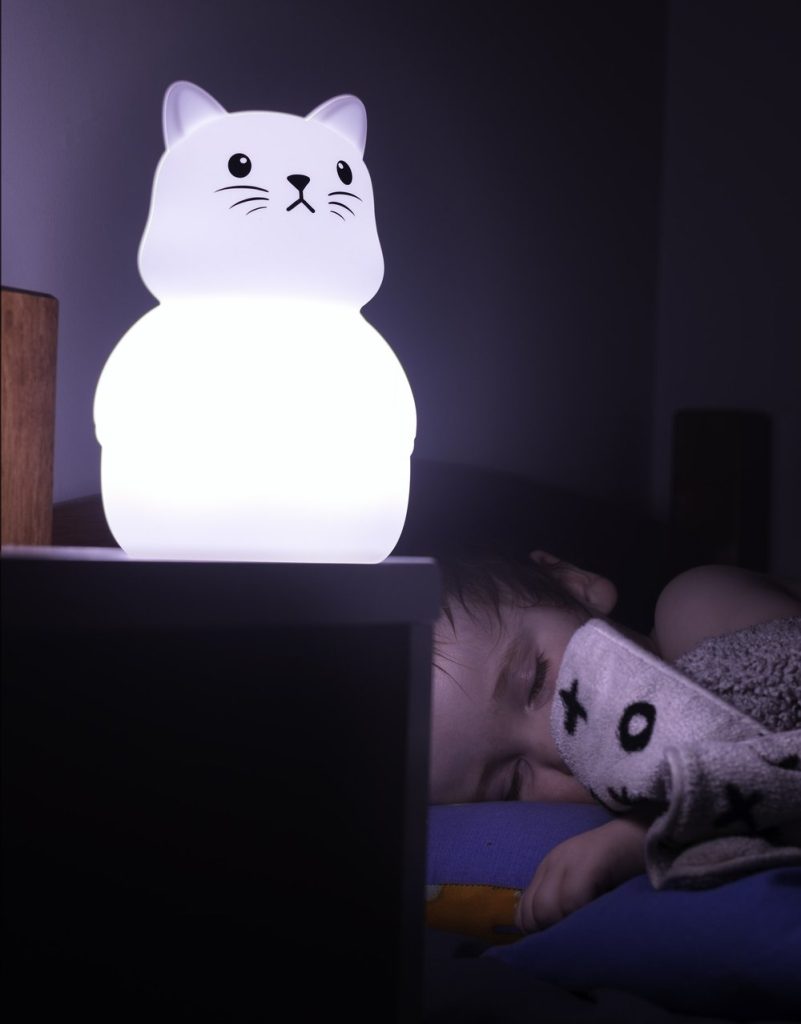
Here are your choices:
Cold turkey, Watered down, or Gradually providing less formula/milk over time.
Cold Turkey Night Weaning
Hands down this is going to be one of the fastest and simultaneously most brutal ways to night wean (in my opinion) although some babies do very well with this.
Your baby will protest.
They may cry, they may likely have a really hard time with this.
Help your baby resettle by rocking, shhshing, bouncing, using a pacifier, or any other number of soothing methods that aren’t a bottle or breast.
It’s helpful to have someone who is NOT the milk machine (or not usually up with the baby) to step in for this process.
Be careful to not replace any sleep crutches by allowing your baby to fall asleep in your arms or from the rocking.
Personally, I’m more all about a gentle approach that helps your baby come to the decision on their own rather than taking something away in a dramatic fashion.
Water Down the Formula or Breastmilk
Watering down what you serve your baby is an effective and far more gentle approach to night weaning.
It’s just as it sounds, although you’ll want to do this gradually over a few nights.
So for example:
Night one – 3 Scoops of formula and 4 Ounces of water. (Or 3 Ounces breastmilk and an extra ounce of water)
Night two – 2 Scoops of formula, 4 ounces of water. (Or 2 Ounces of Breastmilk and add an extra two ounces of water to the bottle)
Night three – 1 Scoop formula, 4 ounces of water. (1-ounce breast milk, add 3 ounces of water)
Night four – All water.
Typically, within one or two nights of offering only water, your baby will realize that milk isn’t on the menu anymore and tire of wanting it.
They’ll start to settle on their own and sleep through the night as a result.
If you are exclusively breastfeeding this is physically more difficult to do so you’ll want to go with the next tip:
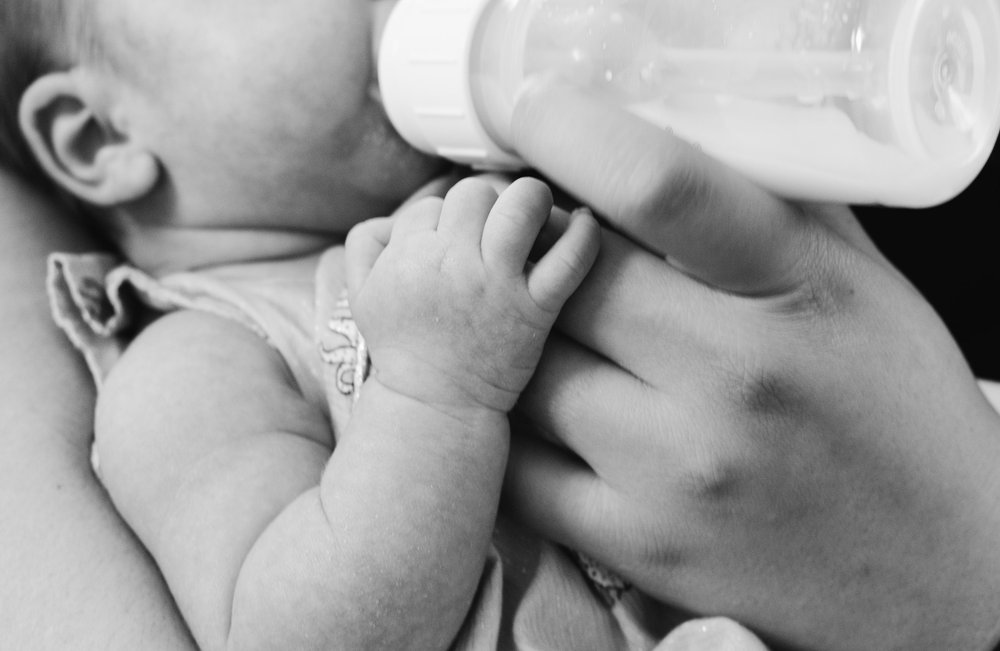
Reduce the Amount of Formula or Breastmilk
You can use this method for both breastfed babies or formula fed babies although it’s a bit easier to measure exact amounts in a bottle.
Over the course of several nights, reduce the amount of formula or breastmilk in the bottle, or the amount of time you are breastfeeding.
This is a gradual decline that is best paired with helping your baby learn other techniques for falling asleep. Sometimes rocking and feeding, sometimes patting and rocking just after you remove the bottle.
This is an example of what a reduction in volume plan may look like:
Night 1 – 4 Ounces of Formula, or 15 Minutes of feeding
Night 2 – 3 Ounces of Formula, or 10 Minutes of feeding
Night 3 – 2 Ounces of formula, or 5 minutes of feeding
Night 4 – 1 Ounce of formula, or just a few minutes of feeding (2 or 3)
Night 5 – nothing. NO bottle. No Breast. Just soothing in the same fashion you’ve been associating with each feed (rocking, patting, head rubbing etc).
Yes, your baby may protest especially as you get into less and less feeding time or less and less in the bottle.
But continue to be consistent, calm, and don’t give in!
You’ll quickly undo all that hard work, patience, and promise of sleeping through the night. Stay the course.
Give a whole lotta fucks right now so you don’t have to in a few weeks.
Just remember to not let your baby fall asleep while they have the bottle or breast in their mouth.
Get them real drowsy but try to keep them awake before you put them back in their bed to settle for the night.

I was able to night wean both my boys by about 9 months old.
My oldest stopped taking a bottle at night around seven months old.
My youngest took a bit longer but it was clear he was waking not for sustenance but rather for comfort and that was my sign it was time.
How can you tell it was for comfort? I’m not sure how I knew, exactly. But I like to credit my mommy gut.
He would linger for long periods without drinking and wanting to play or look around.
He might play with the nipple of the bottle without drinking. Or babble for long periods of time.
He would also take longer to fall back asleep because he was having a major case of fomo.
I was also so much more tired during those night feeds with two under two so I didn’t, honestly, realize how old he was and once I did I was shocked and annoyed!
We’ve been missing out on nearly two months of more sleep!

If your baby is still taking a bottle at night, you’ll want to start preparing to drop a feed by slowly by offering a bit more during the day.
As a formula feeding mom, this was much easier because it simply became a process of making one ounce more per bottle during the day, and slowly decreasing the amount I prepared in the bottle at night.
Sort of an inverse pyramid.
For Sammy, he was still waking up around 1 and/or 4 AM for a feeding.
During the day I’d add one extra ounce of formula to every single bottle.
My thinking was to give him as much of an opportunity to fill up on more food as possible at every single feeding and this ended up being reality.
He drank the entire bottle (including the extra ounce) at nearly every day feeding.
This made night weaning so much easier since he was getting all the calories that he needed during the day.
And here’s the trick, and you sort of have to be paying attention for this.
As soon as I realized he was drinking a full extra ounce at each feed during the day, operation night wean commenced.
Because he also took a pacifier, it was relatively easy for him to fall asleep with the comfort of his binky.
If your baby doesn’t have a pacifier, you may need to rock a bit longer to get them real drowsy but do try to put them asleep awake so they can get sleep faster.
Because this is a rather big adjustment, but also not at all, you can make the judgment call if your baby could handle dropping another feed right away? Or waiting another week to do the same process for the second waking.
Other Content from The DGAF Mom
Get Baby To Sleep Through The Night ( Must Know Baby Sleep Tips)
How to Survive the 4th Trimester (Newborn Hacks You Need to Know)
Bye Bye Binky, How to Wean the Pacifier with No Tears and No Drama
The Benefits of Daycare for You and Your Child
12 Tips to Prepare Your Toddler for a New Baby
Wanna Have a Second Child? Here’s What You Need to Know
How to Know If Breastfeeding May Not Be For You
Formula Feeding Bottle Hacks to Make Formula Feeding Your Baby Easier


